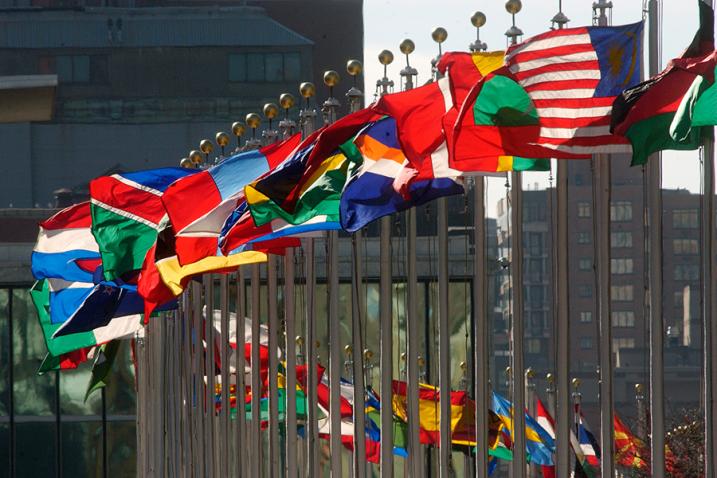The Universal Declaration of Human Rights (UDHR) stands as a monumental document in the annals of human history, enshrining a comprehensive spectrum of rights and liberties inherent to every individual, irrespective of race, gender, or creed. Adopted by the United Nations General Assembly in 1948, the UDHR emerged in the aftermath of the atrocities of World War II, representing a collective aspiration towards dignity, justice, and peace worldwide. Its preamble and subsequent articles serve not merely as legal mandates but as moral imperatives resonating profoundly within the Christian ethical framework.
To begin with, the essence of the UDHR can be traced back to fundamental Christian principles. The notion that all humans are created in the image of God as articulated in Genesis 1:27 underpins the very fabric of human dignity. This theological perspective posits an innate worth uniquely bestowed upon each individual, a cornerstone that echoes throughout the articles of the declaration. The drive towards recognizing universal rights aligns harmoniously with the Christian call to love and serve one’s neighbor, which is prevalent in Jesus’ teachings. As the declaration articulates these rights, it resonates with the biblical narrative of freedom and justice, thus piquing curiosity regarding its implications for faith communities globally.
The declaration encompasses a breadth of rights that can be categorized into civil, political, economic, social, and cultural rights. Articles such as the right to life, liberty, and security of person (Article 3), and the right to freedom of thought, conscience, and religion (Article 18) evoke the Christian ethic of respect for life and the freedom to worship. These points of convergence between the UDHR and Christian doctrine foster a robust dialogue about moral obligations: How can Christians advocate for these rights without compromising their faith principles? This inquiry urges believers to contemplate action beyond mere intellectual assent—into tangible expressions of compassion and justice.
Moreover, the UDHR opens avenues for Christians to engage in social justice advocacy. It compels the Church to a reflective stance on its role in a world marred by inequality and oppression. A shift in perspective becomes paramount as believers recognize that social justice is not a peripheral concern but central to their faith walk. For example, the call for education as a fundamental right (Article 26) aligns with the biblical teaching of wisdom and knowledge. Proponents of the faith are thus invited to pioneer efforts in educational outreach, potentially transforming communities where access to education remains a distant dream.
The implications of the UDHR extend into the realm of economic and social rights as well—reminding believers of their calling to care for the marginalized. Articles advocating for the right to work, to favorable conditions of work, and to social protection (Articles 23 and 22) invite Christians to examine their economic engagements: Are they upholding dignity for all workers? In a world increasingly dominated by consumerism and profit margins, these questions demand a Christian response rooted in ethical stewardship and a commitment to the common good. The gospel of Matthew (25:40) poignantly states, “Whatever you did for one of the least of these brothers and sisters of mine, you did for me.” This passage beckons a deeper understanding of how spiritual outcomes are linked with social conditions, reaffirming the necessity for Christians to engage with the UDHR fervently.
Additionally, the declaration underscores the importance of cultural rights, affirming that every individual has the right to participate in cultural life and to enjoy the benefits of scientific advancement (Articles 27 and 28). These rights evoke the rich tapestry of human creativity and ingenuity, pointing towards a divine Creator who values diversity and cultural expression. For Christians, this recognition serves as an invitation to celebrate and honor different cultures while promoting dialogue and understanding among various communities. This responsibility also illuminates the urgent need for advocates who are willing to champion the rights of minorities and indigenous peoples whose cultural expressions may frequently face erasure in a homogenizing world.
In practical terms, the intersection of the UDHR and Christian thought necessitates a proactive engagement with global issues such as refugee crises, climate change, and systemic discrimination. The call to love one’s neighbor transcends geographic boundaries, urging faith communities to address the pressing realities facing the world today. For instance, Matthew 22:39 commands, “Love your neighbor as yourself,” challenging believers to consider how this love informs their response to those who are suffering. By utilizing the tenets of the UDHR, the Church can frame its advocacy in a language recognized and respected worldwide while simultaneously grounding their actions in theological imperatives.
Ultimately, the UN Declaration of Human Rights offers a compelling lens through which to view Christian advocacy. It challenges the faithful to reflect upon their commitments and actions in light of a document that articulates a vision of dignity and respect for all. The document acts not merely as a set of guidelines for behavior but as a clarion call for transformation—both for individuals and societies. It presents an opportunity for Christians to engage with the world in a manner that honors their faith while advocating for the rights of all. In so doing, believers embody the true essence of the gospel: a commitment not only to individual salvation but to the establishment of a just and compassionate global community.
As the world continues to grapple with complex challenges, the invitation remains: How will individuals of faith respond? In this contemplation lies the potential for a collective shift in perspective—a movement towards embodying the truths articulated within both the UDHR and the heart of the Christian faith. In the end, true freedom is intertwined with the rights and dignity of every person, underscoring a promise of hope for humanity’s future.



